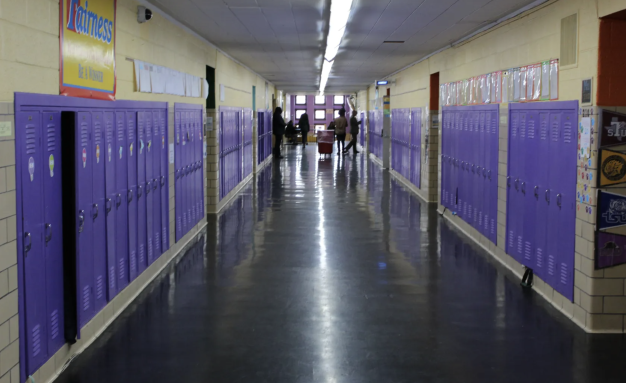
USA: Detroit district gets better at identifying homeless students, but study points to big undercount
Recent efforts by the Detroit school district are helping officials identify more homeless students who would otherwise miss out on crucial support services guaranteed under federal law, a new research study found.
Roughly five per cent of the district’s students were identified as homeless last school year, compared with around one per cent nearly a decade ago.
But the researchers, from Wayne State University’s Detroit Partnership for Education Equity & Research, found that schools in Detroit continue to significantly undercount the number of students experiencing homelessness, as well as other forms of housing instability. Their conclusions are based on data from the Detroit Public Schools Community District and charter schools in the city, as well as interviews with families experiencing housing instability.
The researchers estimated that as many as 16 per cent of the roughly 100,000 K-12 students in Detroit experienced homelessness or housing instability during the 2021-22 school year, with roughly three-fourths of those students not being identified as homeless by their school during that time frame, says Ethan Bakuli of Chalkbeat Detroit.
That gap is critical, because it points to potential underutilisation of support services available to those students. Under the federal McKinney-Vento Homeless Assistance Act, homeless students are entitled to several services and protections, including transportation to and from school, academic support, the right to remain in the school they attended at the time they lost their permanent housing, and the right to enrol in a school even if they lack proper documents.
Homeless students are more likely to be chronically absent, drop out of school, and be suspended or expelled from school. So ensuring students can get access to McKinney-Vento services can have long-term effects on their academic wellbeing, experts say.
‘Potential underutilisation of support for students’
Detroit had about 10,000 homeless people before the pandemic, according to a report from the Homeless Action Network of Detroit, with roughly 20 per cent identified as children under the age of 18. This month, Detroit city officials launched a new office to help residents facing displacement find housing options, part of a $203 million affordable housing plan announced last year by Mayor Mike Duggan’ administration.
Nationally, the identification of homeless students declined during the pandemic as school district liaisons found it harder to reach and provide resources to homeless students.
The Wayne State study outlines several barriers students experiencing homelessness may face, including lack of awareness about available resources, parents’ reluctance to discuss housing challenges with school staff, and a lack of follow-through when parents do disclose their housing status.
The federal definition of homelessness also complicates the task of getting support to students. To qualify for services under McKinney-Vento, students must meet certain criteria that distinguish homeless students from those who are housing insecure. Homeless students are defined by the statute as “individuals who lack a fixed, regular, and adequate nighttime residence,” whereas the housing insecure category can be broadly defined and include those who may have been evicted at some point before shortly finding housing.
The Wayne State report notes that while 16 per cent of students in Detroit may have experienced housing insecurity or homelessness in 2021-22, only about 11 per cent may have qualified for services under McKinney-Vento.
To increase the identification of students facing housing instability, the researchers recommend that Detroit schools strengthen relationships with parents and improve communication about the availability of services.
‘A stigma comes with homelessness’
DPSCD, for its part, has increased its efforts to identify homeless students in recent years by adding full-time staff to its homeless student office, adding a residency questionnaire with its student enrolment form, and publicising information about available services through designated staff and resource rooms at individual schools.
These efforts are likely the reason DPSCD has been able to identify a greater share of its homeless students than Detroit’s charter schools, the study said. DPSCD identified about 29 per cent of its students who experienced housing difficulties, the researchers estimated, compared with only 16 per cent for the charter schools.
This school year, DPSCD identified over 2,200 students as homeless, compared with 765 in 2018-19, according to Superintendent Nikolai Vitti.
“We’ve definitely increased our numbers (of homeless students), because we’ve done a better job of engaging families and creating more awareness about the opportunity to be identified as homeless,” Vitti said at a school board committee meeting this spring. “But it’s natural to know that there’s a stigma that comes with that, and some parents are not comfortable.”
“We have done a better job over the years of identifying, but I would agree it’s still undercounted,” he said.
Vitti also pointed to the added hurdles families may face: A student or family member has to apply for McKinney-Vento services and be reviewed by a DPSCD staff member to be identified as homeless before they can qualify for support.
Those hurdles are compounded by a student’s “willingness to admit to homelessness,” Vitti said, as well as the limited resources available.
Despite recent budget cuts that have affected many of the district’s central office employees, Vitti said DPSCD will continue to staff its districtwide Office of Homeless and Foster Care by using grant dollars to hire contracted staff, as well as emphasize “relationship building, awareness and additional training for staff” and school liaisons.
Principals annually select a school staff member to identify and provide support services to students facing housing insecurity. Those staff will continue to receive monthly training on the inner workings of McKinney-Vento, mandated reporting, and available resources.
Ethan Bakuli is a reporter for Chalkbeat Detroit covering Detroit Public Schools Community District.
First published on Chalkbeat, a nonprofit news site covering educational change in public schools.



